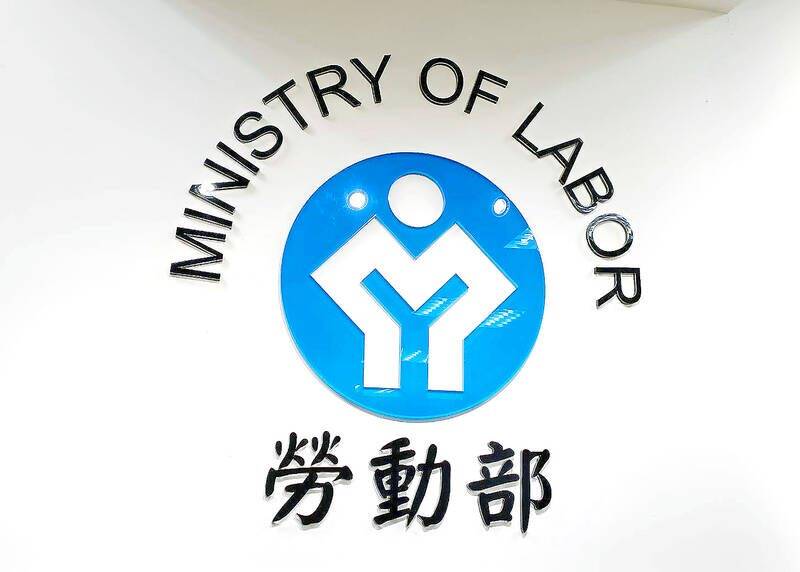The Ministry of Labor (MOL) on Thursday said that it plans to eliminate its quota limit and points system to allow more foreign and overseas compatriot students to stay and work in Taiwan after graduation.
In a special report submitted to the Legislative Yuan’s Social Welfare and Environmental Hygiene Committee, the ministry said that it intends to review and amend regulations to eliminate the quota limit and evaluation points system for foreign and overseas compatriot students.
It is also deliberating introducing a specific work permit for the students, it added.

Photo: Lee Ching-hui, Taipei Times
Su Yu-kuo (蘇裕國), head of the Cross-Border Workforce Management Division within the ministry’s Workforce Development Agency said that under the current system, individuals have to be employed in one of 15 designated specialized occupations, and must also accumulate at least 70 points across eight criteria before their inclusion in the quota system would be considered.
The ministry established the points system in 2014. The evaluation criteria include educational background, salary, work experience and proficiency in Mandarin.
Employers also need to have capital of at least NT$5 million (US$153,563) or annual revenue of NT$10 million or above to meet the standard.
Su said that due to demographic changes, labor shortages and gaps in different industries, the Taiwan Confederation of Trade Unions previously recommended prioritizing the retention of foreign and overseas compatriot students.
However, neither the Employment Service Act (就業服務法) nor Article 51 of the Recruitment and Employment of Foreign Professionals (外國專業人才延攬及僱用法) specify foreign and overseas compatriot students in its work permit system.
Su added that the current system of increasing the quota every year is not effective given there are about 12,000 foreign and overseas compatriot students graduating annually.
Discussions are to be held with the National Development Council, Ministry of Education, Overseas Community Affairs Council (OCAC), and others regarding eliminating the quota adjustment, Su said.
Eliminating quota restrictions would provide foreign and overseas compatriot students with greater assurance during their studies and increase their inclination to remain and work in Taiwan, he added.
On the OCAC Web site, the term “overseas compatriot student” is defined as a student of Chinese/Taiwanese descent who has come to Taiwan to study, who was born and raised overseas, or who has been living overseas for six or more consecutive years and obtained permanent or long-term residency status overseas.
The term “overseas” refers to countries or regions other than Taiwan, China, Macau and Hong Kong, it says.

Eight restaurants in Taiwan yesterday secured a one-star rating from the Michelin Guide Taiwan for the first time, while three one-star restaurants from last year’s edition were promoted to two stars. Forty-three restaurants were awarded one star this year, including 34 in Taipei, five in Taichung and four in Kaohsiung. Hosu (好嶼), Chuan Ya (川雅), Sushi Kajin (鮨嘉仁), aMaze (心宴), La Vie by Thomas Buhner, Yuan Yi (元一) and Frassi in Taipei and Front House (方蒔) in Kaohsiung received a one-star rating for the first time. Hosu is known for innovative Taiwanese dishes, while Chuan Ya serves Sichuan cuisine and aMaze specializes

Taitung County is to launch charter flights to Malaysia at the end of this year, after setting up flights to Vietnam and Thailand, the Taitung County Government said yesterday. The new charter flight services, provided by low-cost carrier Batik Air Malaysia, would be part of five-day tour packages for visits to Taitung County or Malaysia. The Batik Air charter flight, with about 200 seats, would take Malaysian tourists to Taitung on Dec. 30 and then at 12:35pm return to Kuala Lumpur with Taiwanese tourists. Another charter flight would bring the Taiwanese home on Jan. 3 next year, arriving at 5:30pm, before taking the

Taiwan High Speed Rail Corp. (THSRC) plans to ease strained capacity during peak hours by introducing new fare rules restricting passengers traveling without reserved seats in 2026, company Chairman Shih Che (史哲) said Wednesday. THSRC needs to tackle its capacity issue because there have been several occasions where passengers holding tickets with reserved seats did not make it onto their train in stations packed with individuals traveling without a reserved seat, Shih told reporters in a joint interview in Taipei. Non-reserved seats allow travelers maximum flexibility, but it has led to issues relating to quality of service and safety concerns, especially during

An exhibition celebrating Taiwan and Japan’s comic culture opened on Saturday in Taichung, featuring a section that explores Taiwanese reproductions of Japanese comics from when martial law limited Japanese representation. “A Century of Manga Culture: An Encounter of Taiwan and Japan’s Youth” held its Taiwan opening ceremony at Taichung’s National Taiwan Museum of Comics after an initial one-month run in Japan’s Kyoto International Manga Museum between May 24 and June 24. Much like the Kyoto exhibition, the show mainly celebrates the comic connection between Taiwan and Japan through late Taiwanese comic book